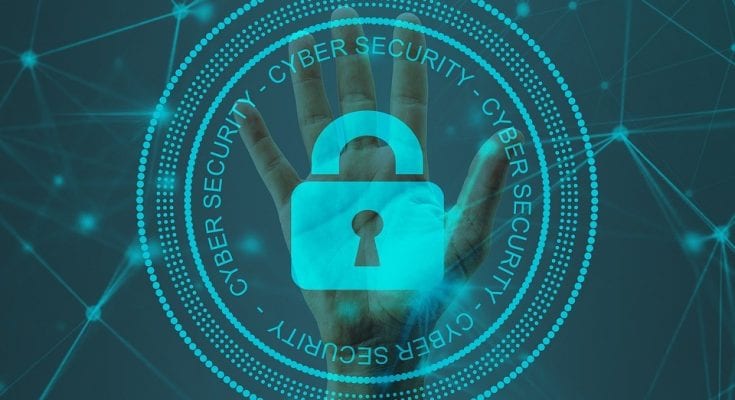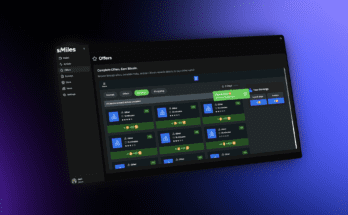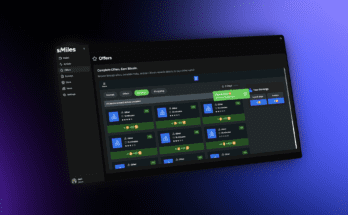In the 21st century, the wonders of technology are no surprise to anyone. People obsess over online shopping, while businesses take advantage of automated workflows and digital tools. Meanwhile, these advancements foster productivity, the increasing reliance on technology is posing substantial threats for businesses. After all, hackers have also become smarter in this digital age.
Simultaneously, global connectivity and cloud services also bring the hacking risk. It stores confidential information online on digital servers, raising the risk of data breaches. And now, antivirus and firewalls are not enough to protect your data from breaches. Entrepreneurs have to invest in security infrastructure and hire cybersecurity professionals. Similarly, you have to educate your staff because cyber threats can come from any organization’s department.
Before security incidents cause irreversible reputational damage to companies, understand its importance, and take implementation measures. Have a look below to understand the role of cybersecurity in this tech-savvy world.
Importance of Cybersecurity
Unsurprisingly, we have become dependent on technology more than ever, and this trend is unlikely to slow down. Personal data is all over social media accounts, while sensitive information such as credit card numbers is in cloud servers. Do you believe these systems are safe? Connected devices, smartphones, and cloud servers have a multitude of cybersecurity threats. Attackers can break into your system by making you click on a video link. Likewise, leakage of credit card information can cost you heaps of money.
As hackers employ new hacking techniques, cybersecurity takes responsibility for protecting and recovering computer systems from cyberattacks. If you wish to safeguard your business against cyber threats, hire a cybersecurity expert.
There is an increase in demand for these professionals, and students worldwide attract to choose cybersecurity as a career. You can opt for a masters in cyber security online to become a cybersecurity expert. You will learn to leverage tools that limit information loss, monitor risk, and scan data exposure. Here we are unfolding a few ways how cybersecurity is playing its role in today’s modern era.
1. Prevents Data Breaches
Undeniably, enduring cyberattacks can be super expensive for businesses. In addition to the financial damage, data breaches inflict substantial reputational damage. Customers lose trust in the company and end up looking for substitutes. Similarly, the reputation of improper security can turn investors away, landing the entire company into hot water. Luckily, cybersecurity can save your business by preventing data breaches.
It limits access to valuable data, which means a sales representative won’t have access to any financial information. As a result, it narrows down the pool of employees who might click on harmful links and pose threats to the business. Besides this, cybersecurity professionals regularly update software and applications because old systems are more vulnerable to attacks.
2. Provides End-Point Security
Nowadays, remote access has become an integral part of business, especially for mobile teams. Although it improves accessibility, it can be a weak point for safety. After all, devices like smartphones, tablets, and laptops provide an entry point for threats. Here, end-point security protects the company’s network’s remote access, closing doors for potential cyberattacks. It secures every end-point connected to a network while blocking the access attempts of risky activities.
Moreover, it supplements centralized security measures with additional protocols at every entry point. It acts as a point of egress for sensitive data because every device has to meet security standards to get access. Therefore, enterprises can maintain higher control over their number of access points. These security protocols also monitor and block all risky and malicious activities.
3. Offers A Disaster Recovery Plan
What if your company experiences a cyberattack? Despite security protocols, cyberattacks don’t occur after ringing a bell. You might be working on a better safety system, and suddenly, the software can start showing an irretrievable error. Precisely, this is how cyberattacks happen. If you begin to think of strategies to protect data at this time, all information will be long gone. Therefore, you should always have a disaster recovery plan ready.
Cybersecurity professionals think from a hacker’s perspective to understand how potential attacks could occur. They trace the clues cybercriminals leave behind to apprehend their attack patterns. It helps them fix underlying problems in the system and develop a stellar plan to limit data loss. For instance, if the system breaks down, experts can launch the protective firewalls immediately. Besides this, they also include recovery methods to recover the lost data and avoid negative publicity.
4. Blocks IoT-Based Attacks
Lately, a massive distributed denial-of-service (DDoS) attack slowed access to Amazon, Twitter, and PayPal because of a comprise of IoT devices. It means all smart devices making your work and household chores easy can lead to cyberattacks. Cybersecurity professionals help in improving the security of these devices by setting strong passwords. They evaluate safety at each layer of the IoT devices and plan an actionable security roadmap.
Essentially, there are two security vectors – physical tampering and cyberattacks. Security experts ensure the product has no exposed ports or connectors. Likewise, they take considerations ranging from encryption to identity management. You can also install a two-factor authorization on high-tech IoT devices to combat risks and vulnerabilities.
Furthermore, cyber experts disable the universal plugin and play features, which connect multiple devices. If a hacker discovers one device, it will become plain sailing to find the other, letting them dismantle the entire system. Therefore, don’t forget to disable this feature.
5. Fulfills Cyber Regulations
With advancing threats and spiking exposure, it is becoming challenging to manage threats. The advisory organizations promote more practical and adaptive tactics to protect companies from data breaches. The National Institute of Standards and Technology has also released guidelines for risk valuation framework, recommending a swing toward continuous monitoring. All this would become possible with the help of cybersecurity.
It offers real-time assessments and a data-focused approach to security, helping organizations predict threats. At the same time, they educate all levels of the organization about online scams and phishing emails. Since there are regulations and laws to protect confidential information, cybersecurity measures can help companies fulfill their legal obligations. Otherwise, the organization could suffer from regulatory fines and sanctions.
To Conclude
Unfortunately, large and small companies are scrambling to respond to growing threats. Hackers are using proficient methods and complex attacks to steal confidential data. Fortunately, cybersecurity professionals are familiar with techniques that can minimize risk, save costs, and maintain network security. They also strive to diminish the likelihood of attacks happening again while strengthening the organization’s IT infrastructure. In short, they act as the saviors of the digital world, securing it from blackmailers and hackers.
Additional Resources:
Telegram



